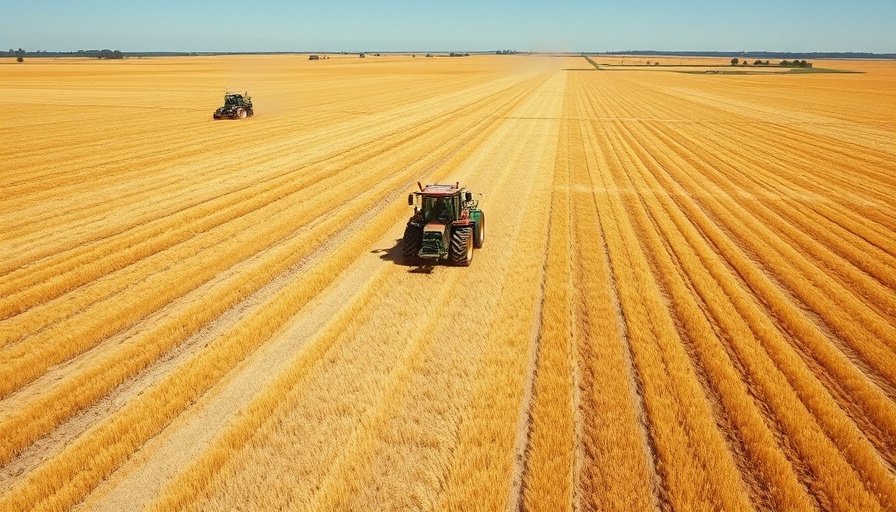
The Shockwaves of USDA Layoffs: Impact on American Agriculture
In a wave of staffing changes that many are calling disastrous, the mass layoff of scientists at the U.S. Department of Agriculture (USDA) has raised alarm among agricultural stakeholders and scientists alike. Reports indicate that critical research projects aimed at enhancing crops, combating pests, and understanding climate impacts are now significantly jeopardized, centering attention on how these changes will reverberate through American farming.
A Disruption of Vital Research
The recently reported layoffs come amid a significant restructuring underway at the USDA, part of broader workforce reductions that have affected an estimated 200,000 federal employees. These decisions are reportedly targeting those still in their probationary period, often newly hired researchers who are critical for advancing scientific initiatives in agriculture. As the turmoil unfolds, crops essential to the American diet—including a variety of specialty crops that have sustained regional economies—face potential setbacks as research momentum is lost.
Transformative Policies in Jeopardy
The layoffs strike at the heart of efforts related to the Inflation Reduction Act (IRA), a key piece of legislation aimed at enhancing carbon sequestration and reducing greenhouse gas emissions from agriculture. With the USDA slated to receive $300 million via the IRA to streamline these processes, the abrupt staff reductions may hinder the department's ability to fulfill these ambitious goals. Experts contend that the funding intended to support innovative crop management and environmental practices is now tainted with uncertainty.
Feedback from Affected Employees
Current and former USDA scientists express feelings of instability as they navigate the shifting landscape of agricultural research. One scientist described recent weeks as marred by chaos, recounting a frustrating series of pauses in work related to the IRA—depicting an environment where meaningful progress has become nearly impossible. This not only threatens the completion of ongoing research but also shatters team morale, leading to fears that the agricultural sectors may be rendered rudderless.
Emotional Toll and Future Prospects
The layoffs have not only raised concerns over project continuity but have also taken a toll on the personal lives of affected employees. Many scientists, like Dustin Herb from Oregon, faced unexpected job loss at pivotal moments in their lives, causing stress that clouds their future employment prospects. With the job market in the public sector becoming increasingly competitive, these researchers now grapple with the implications of their termination affecting their chances of working in federal positions moving forward.
The Broader Implication on Sustainability Initiatives
Amid the ongoing discourse about climate change and sustainable farming practices, the removal of skilled scientists from the USDA raises questions about the efficacy of future environmental initiatives. Emily Bass from the Breakthrough Institute suggests that the unplanned reduction in scientific expertise might roll back progress in assessing the impacts of federal agricultural programs designed to support eco-friendly practices across various states, including those that strongly supported recent legislation.
Conclusion: Time for Action
The recent layoffs at the USDA are more than just workforce changes—they represent a critical inflection point for American agriculture. As projects essential for improving crop resilience and responding to climate trends falter, stakeholders must rally for a strategic reconsideration of these workforce reductions. Moving forward, reevaluating our commitment to agricultural research and development is paramount for securing a sustainable agricultural future. Stakeholders, policymakers, and citizens alike should engage in discourse around how to best support a sector that feeds the nation while maintaining its crucial connection to environmental stewardship.
 Add Row
Add Row  Add
Add 




Write A Comment